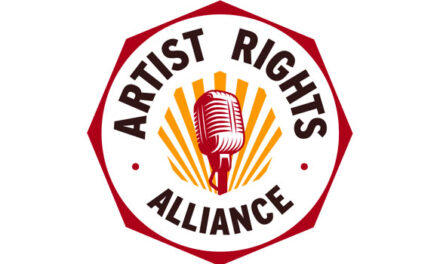Move is one step closer for artists to get paid when songs are played on the radio
The House Judiciary Committee has passed the American Music Fairness Act that would mandate that US radio stations pay artists when their songs are played on the radio. Currently, recording artists and labels are paid when their music is played on streaming services and satellite radio, but not on any of the terrestrial radio stations throughout the country. The bill would require large broadcasters such as iHeartMedia, Audacy, and Cumulus Media to pay performance royalties for their use of sound recordings, while also providing relief for smaller stations or public stations via a modest annual flat fee.
House Judiciary Committee Chairman Jerrold Nadler shared the news on Wednesday (Dec 7th), saying artists should be compensated fairly for their art.
“Imagine a profession in which you put in countless hours to create a product that is appreciated by millions of people, but while major companies can generate significant profits distributing your product, those companies pay you absolutely nothing for your efforts,” Nadler states.
“This may seem unthinkable, but it is the reality for American recording artists and musicians when their music is played on AM/FM radio. They do not receive a penny in exchange for the broadcast of their performances, even though the large broadcasting corporations playing their music take in billions of dollars every year from advertising.
“This unfairness exists because our copyright laws recognize a public performance right only in digital audio transmissions, rather than in all audio transmissions. Thus, while other music platforms, like satellite radio and digital streaming services, do pay artists and musicians when they play music, AM/FM—or “terrestrial”—radio is allowed to use and to profit off the performances of these artists for free.
“As a result, American artists have been denied the fair compensation they are due when terrestrial radio uses their creative work. It is time for this fundamental unfairness finally to be fixed.”
In September, US Senators Alex Padilla (D-CA) and Marsha Blackburn (R-TN) introduced the bipartisan American Music Fairness Act (AMFA) to Washington. The bill was introduced last year by Representatives Ted Deutch (D-FL) and Darrell Issa (R-CA) and seeks to ensure that performing artists are paid for the use of their songs on the 8,300 AM and FM radio stations throughout the country.
Artists such as Dionne Warwick, Sam Moore, Dropkick Murphys’ Ken Casey and Dickey Bettes endorse the bill. Supporting organizations include the AFL-CIO, the American Association of Independent Music (A2IM), the American Federation of Musicians, the Recording Academy, the Recording Industry Association of America (RIAA), SAG-AFTRA and SoundExchange.
The Recording Academy has long championed the establishment of a terrestrial radio performance right for sound recordings, and worked alongside key Congressional champions to draft this key legislation for music makers. Recording Academy CEO Harvey Mason Jr. applauds the work of the House Judiciary Committee for moving the bill one step closer to law.
“Today’s passage of the American Music Fairness Act through the House Judiciary Committee marks an important step for this critical piece of legislation, and I am grateful to Chairman Nadler, Rep. Issa, and members of the committee for supporting the music community’s right to fair pay,” Mason Jr. says. “It is vital to the health of our industry that creators are compensated for the use of their intellectual property on terrestrial radio, and the Recording Academy will continue to advocate for AMFA until this bill is signed into law.”
Not all organizations want the bill approved. The National Association of Broadcasters says the law would hurt many in the radio community.
“NAB thanks the members of the House Judiciary Committee who voted against the AMFA today, and the more than 250 members of Congress – including a majority of the House of Representatives – that support a resolution opposing this new performance royalty on local radio,” NAB CEO and President Curtis LeGeyt released in a statement. “These lawmakers understand that AMFA will harm local broadcasters and audiences around the country, undermine our ability to serve their communities and ultimately fail artists by leading to less music airplay. Broadcasters urge the recording industry to join us in serious discussions instead of using the few legislative days left in the calendar to pursue divisive legislation that faces broad congressional opposition.”
The law still needs to get further Senate approval before going to the White House and becoming law.




